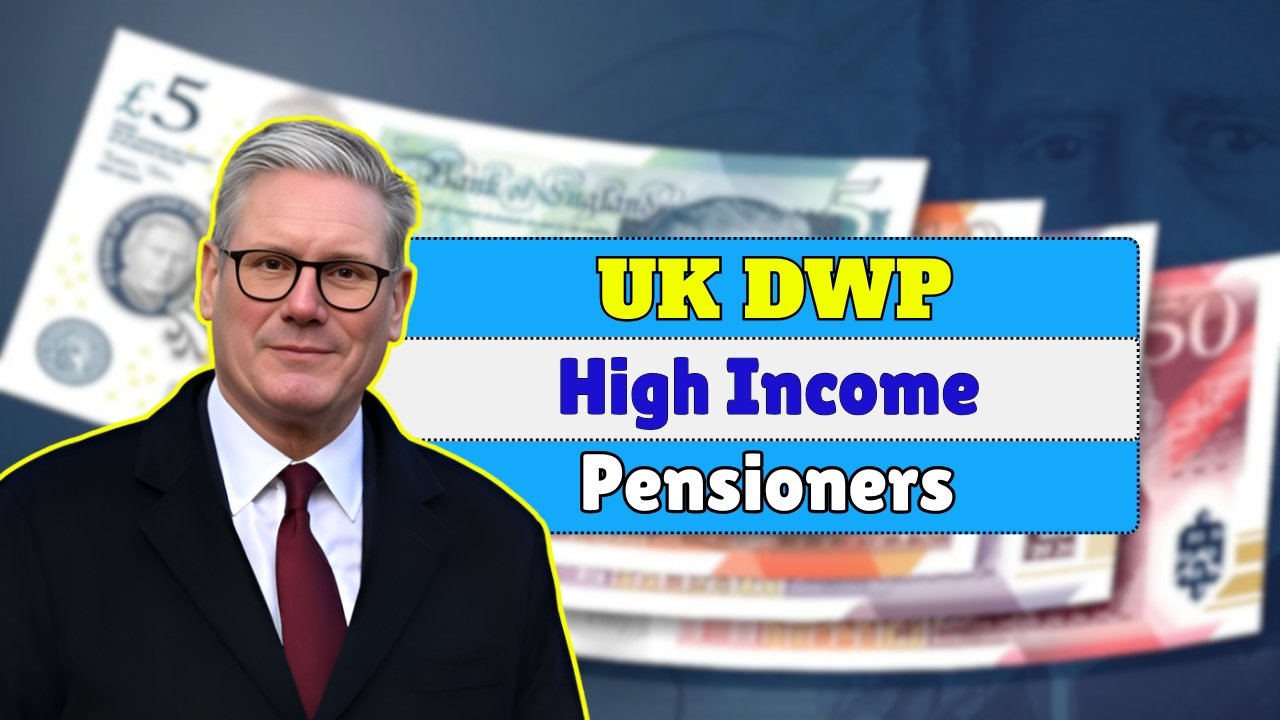Join on WhatsApp
Get the latest updates directly on WhatsApp – motivation, news & more!
The UK government continues to provide financial support to pensioners during the winter months to help cover heating costs. One of the key initiatives in this regard is the Winter Fuel Payment, administered by the Department for Work and Pensions (DWP). However, in 2025, new rules have been confirmed regarding high-income pensioners, who may now face a clawback by HM Revenue and Customs (HMRC). This change has significant implications for certain retirees, particularly those with larger incomes or combined pensions. In this article, we explore the details of the rule change, eligibility criteria, and what high-income pensioners need to know.
Overview of the Winter Fuel Payment
The Winter Fuel Payment is an annual cash benefit provided to eligible pensioners in the UK. Its primary purpose is to help cover the costs of heating during the colder months. Payments are typically made between November and December each year, and the amount varies depending on age, household composition, and other factors.
Historically, this payment was offered universally to all qualifying pensioners without means testing. However, the DWP’s recent clarification introduces a new threshold, targeting high-income pensioners for potential repayment or reduction through HMRC.
Why the Rule Change Matters
The new rule affects high-income pensioners whose total income exceeds a specific threshold set by the government. These individuals may now face a partial or full clawback of the Winter Fuel Payment through their tax obligations.
The policy aims to ensure that public funds are directed toward pensioners who are most in need while maintaining fiscal responsibility. High-income pensioners, who typically have substantial private pensions or additional sources of income, may no longer be eligible for the full payment, ensuring resources are focused on those with lower incomes.
Who Qualifies for the Winter Fuel Payment
Eligibility for the Winter Fuel Payment is generally based on age and residency. To qualify:
- The individual must have reached the qualifying age for state pension eligibility
- Must reside in the UK for at least part of the qualifying week
- Must be receiving a state pension or other qualifying benefits
For 2025, the qualifying age for full payment remains consistent with current state pension age regulations, which are gradually increasing depending on date of birth. The DWP uses existing records to determine eligibility, and many pensioners automatically receive the payment.
High-Income Clawback: What You Need to Know
The clawback applies to pensioners with total incomes above a threshold determined by HMRC. This includes income from:
- Private pensions
- Savings and investments
- Rental income
- Other taxable sources
High-income pensioners will receive a notification explaining the amount to be clawed back, which will be recovered through tax adjustments or direct deductions. HMRC uses tax records and income statements to calculate the repayment amount.
How the Clawback is Calculated
The repayment amount depends on the individual’s total taxable income. Pensioners with incomes just above the threshold may only experience a partial reduction, while those with substantially higher incomes could be required to repay the full Winter Fuel Payment.
HMRC considers combined household income when calculating clawbacks for couples, ensuring that both partners’ incomes are factored into the repayment decision. Accurate reporting of all income sources is crucial to avoid discrepancies or penalties.
Payment Dates for 2025
Winter Fuel Payments are typically distributed between November and December. High-income pensioners may still receive the initial payment, but HMRC adjustments will apply later through tax calculations.
It is recommended that pensioners monitor their accounts and tax communications carefully to ensure they understand the timing and method of repayment. Payment schedules are designed to minimize disruption while ensuring compliance with the new rules.
Steps High-Income Pensioners Should Take
Pensioners affected by the clawback should consider the following steps:
- Review income records and ensure all sources of income are accurately reported to HMRC
- Check eligibility and payment notices from the DWP
- Keep track of communication from HMRC regarding repayment amounts
- Consult a tax advisor if needed to plan for adjustments and potential repayment
Proper planning can help mitigate surprises and ensure that pensioners remain compliant with the new rules while managing their finances effectively.
Impact on Pensioners
The clawback rule primarily affects pensioners with higher incomes who may have previously received the full Winter Fuel Payment without adjustment. While this change may reduce the amount received, the majority of pensioners with moderate or low incomes will continue to benefit fully from the payment.
For households that rely on the Winter Fuel Payment to cover heating and energy costs, understanding the rules and planning accordingly is crucial to maintaining financial stability during the winter months.
Conclusion
The UK DWP’s confirmation of HMRC clawback for high-income pensioners in 2025 marks a significant change in the administration of the Winter Fuel Payment. This adjustment ensures that public funds are targeted toward pensioners who need them most, while high-income pensioners contribute appropriately through the tax system.
Pensioners should review eligibility criteria, monitor DWP and HMRC communications, and plan for potential repayments. By understanding the new rules, retirees can make informed decisions about their finances and ensure a smooth experience during the winter benefit season.



